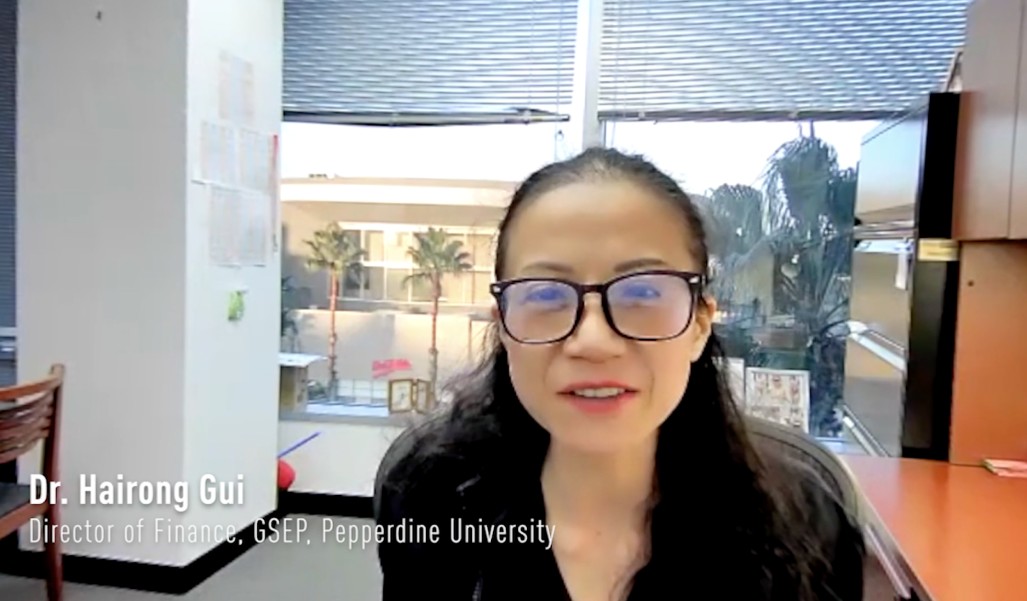
Founded in 1969 and based in Malibu, California, the Graduate School of Education and Psychology has gone through a major transformation under the leadership of Dean Helen Williams. With her dedication and passion, Williams sought to create a culture of connection and safety where colleagues can form strong and secure relationships with each other. The driving factor behind her vision was to create an environment where people can grow together, create together, and achieve a sense of meaning and satisfaction at work, serving students and university friends and partners.
In her efforts to create a strong team, Williams brought in Dr. Hairong Gui, an ambitious, highly capable, and competent professional, to lead their finance division as the new Director of Finance. When Gui and Williams began their journey, their goals were to improve performance, processes, and teamwork that can ultimately support the school’s growth and provide students and constituents with a solid foundation of service and trust.
“The main challenge for us was that our student accounts were not getting the attention they needed. We realized that our approach to solving this problem created a lot of tension, stress, and divisiveness in our teams,” Williams says. “Watching people putting in long hours and not achieving the desired results was troublesome. I felt that the whole division had to do it together. I realized that it was more advantageous to ensure that the team needed to be connected for the results to change. Success and failure can never be attributed only to one person. It’s a team effort.”
The EmC Leaders began the working project side by side with Dr. Gui and her team, repairing their connection and expanding her leadership style. While Williams and Gui had instinctively followed the strategies of the EmC process in approaching challenges, by integrating the EmC model, they started to transform the division’s communication, relationships, and culture even more. Based on the experiential journey, critical changes began to take place:
The team started to respond to each other with care, understanding, and acceptance. Their strategies, using the EmC Tools, helped the team gain confidence and began to form positive energy that showed up in their daily interactions. Here are a few examples:
Awareness: The team started to become a lot more self-aware of their internal ability to tune into their emotional experience, thereby allowing them to share their vulnerability more openly in moments of stress.
Accountability: “Accountability is best when it comes from within,” Gui says, “when we feel supported and confident in knowing that we feel safe with each other, then I no longer have to demand accountability. It just happens automatically.” In addition, everyone seems to feel a lot more motivated to learn the skills so that our relationships can remain strong.
Social Ability: By having difficult conversations guided by the EmC process, the team felt safe and cared about, which helped them to have comfortable face-to-face interactions. Instead of figuring things out on their own, the team started to come up with better solutions together.
Relationships: Forming strong relationships has always been the bedrock of Pepperdine’s success. To stay connected with this mission, the team focused on the relationships, they began to change the culture. Nurturing strong relationships became the number one priority.
Pepperdine saw immediate results from this engagement. Just about everything they measured improved. “The first thing I noticed is that everyone’s effort increased by about 200%,” Gui says. “Previously, the student accounts would be neglected and difficult to keep up to date. That does not happen anymore at GSEP.”
“The student account team resolved most of the past due accounts and were able to issue 1200 refunds in just one week,” Gui says, “This is unprecedented. We have never experienced this type of result before.” The division also eliminated most of the roadblocks in working together with other teams and communicating openly without fear. Our working environment has become so different. We crack jokes, we laugh together, and it feels like we are functioning as one,” Gui says, “Creating the connected environment as we experience, I feel very proud of our work and what we were able to accomplish. It’s magic.”
Other departments are catching on, inquiring about how the GSEP finance team has been able to achieve such results by integrating the EmC into daily interactions, strengthening relationships, and transforming the division’s culture.
“Early on, we understood that in order to see different results, we needed to have different tools,” Gui says, “I feel that the EmC tools provided us with a roadmap to make a significant difference. Not only it helped me in my professional settings, but it also helped me in my personal relationships. When relationships are intact and secure, our life improves.”